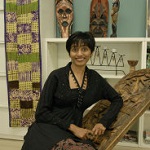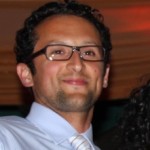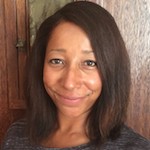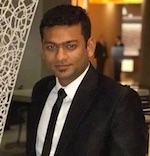SEE WHAT WE ARE DOING
LINKED LEARNING COMMUNITY
Linked Learning is a successful approach to education based on the idea that students work harder and dream bigger if their education is relevant to them.
Linked Learning is a California statewide initiative (funded by the James Irvine Foundation) that combines rigorous academics, work-based learning, career and technical education (CTE), and student supports to prepare them for academic college, career, and life. The focus of our research is how to use a systems approach to create sustainable social change via Linked Learning community engagement by helping to build a Virtual Community of Practice (vCoP) using current technology, theories, and models that support Linked Learning teachers and students within the Green Pathway areas of Environment, Sustainability, Energy, and Transportation in urban schools in Los Angeles.
This systems approach will involve sharing the best practices, projects and lessons learned by all the stakeholders within the Green Pathways Community of Practice via an interactive mobile app (m-CoP); which will link all Linked Learning stake holders within the environmentally sustainability domain. The major outcome of this m-CoP will be sustainability via social interactions, life-long learning, connections, sharing of best practices (using multimedia), access to resources, community participation, access to internships and collaborations among college students’ and Linked Learning Pathway students.
We believe that LAUSD Green Pathways schools will create tremendous value from a virtual community of practice that promotes a network dedicated to their success through consistent information sharing, collaboration, and participatory knowledge generation.
ABOUT US
Linked Learning is a California statewide initiative (funded by the James Irvine Foundation) that combines rigorous academics, work-based learning, career and technical education (CTE), and student supports to prepare them for academic college, career, and life. The focus of our research is how to use a systems approach to create sustainable social change via Linked Learning community engagement by helping to build a Virtual Community of Practice (vCoP) using current technology, theories, and models that support Linked Learning teachers and students within the Green Pathway areas of Environment, Sustainability, Energy, and Transportation in urban schools in Los Angeles.
This systems approach will involve sharing the best practices, projects and lessons learned by all the stakeholders within the Green Pathways Community of Practice via an interactive mobile app (m-CoP); which will link all Linked Learning stake holders within the environmentally sustainability domain. The major outcome of this m-CoP will be sustainability via social interactions, life-long learning, connections, sharing of best practices (using multimedia), access to resources, community participation, access to internships and collaborations among college students’ and Linked Learning Pathway students.
We believe that LAUSD Green Pathways schools will create tremendous value from a virtual community of practice that promotes a network dedicated to their success through consistent information sharing, collaboration, and participatory knowledge generation.
OUR TEAM
RESOURCES
United States Environmental Protection Agency
The Environmental Protection Agency is an independent agency of the United States federal government for environmental protection. The agency conducts environmental assessment, research, and education. It has the responsibility of maintaining and enforcing national standards under a variety of environmental laws, in consultation with state, tribal, and local governments. The agency also works with industries and all levels of government in a wide variety of voluntary pollution prevention programs and energy conservation efforts.
North American Association for Environmental Education
NAAEE’s influence stretches across North America and around the world, with members in more than 30 countries. NAAEE and its 54 state, provincial, and regional Affiliate organizations in the United States, Canada, and Mexico have more than 16,000 members. These members are professionals with environmental education responsibilities and interests across business, government, higher education, formal (K–12) education, nonformal education, early childhood education, science education and STEM, and other sectors of society.
Linked Learning is a successful approach to education based on the idea that students work harder and dream bigger if their education is relevant to them. Linked Learning exposes high school students to previously unimagined college and career opportunities by turning their education into a personally relevant, engaging experience. Research shows that Linked Learning students have higher rates of engagement and higher graduation rates than their peers at traditional high schools. This approach to education is helping to create a disciplined, prepared, and productive future workforce, ready to succeed in college, career, and life.



